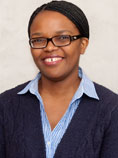
There will be seventeen presidential and legislative elections in Africa in the nine months remaining in 2011, and that fact, plus the recent violent four-month electoral standoff in Côte d’Ivoire, means the moment has come for African leaders and institutions to take elections seriously. This was the topic of discussion at the meeting of election experts held in Addis Ababa last month that examined how the African Union (AU) Panel of the Wise could engage more successfully in the prevention, management, and resolution of election-related conflict.
Inaugurated in December 2007, the five-member Panel of the Wise was established to support continental conflict-prevention efforts by advising the AU Peace and Security Council and the Chairperson of the Commission on “issues pertaining to the promotion and maintenance of peace, security and stability in Africa.”
Having devoted its first year to reflection on election-related conflict and political violence following the postelection crisis in Kenya, the Panel of the Wise in 2008 produced a report calling on African leaders to commit to consistently free and fair electoral processes. The report was subsequently adopted by the AU Assembly of Heads of State and Government at its thirteenth Ordinary session held in Sirte, Libya, in July 2009.
It is time to turn that commitment into reality. To do this, it is necessary to understand that elections are processes, not merely standalone events. The focus is too often only on the vote itself and its value as a democracy-building exercise. However, the complete electoral cycle, including the pre-voting and postvoting phases of the process, as well as the voting phase itself, should command attention.
At the level of the AU, there must be enhanced collaboration among the relevant departments of the AU Commission. By conducting pre-election assessment missions (on the planning and organization of elections) and postelection fact-finding missions (with a view to preventing the outbreak of electoral disputes), as well as shuttle diplomacy and mediation missions (to help resolve election-related conflicts), a freshly resourced Panel of the Wise––and through it, the Peace and Security Council––could complement the election observation and monitoring role of the UN Department of Political Affairs and further strengthen continental efforts aimed at anticipating and preventing election disputes and violence.
A credible electoral process is essential for limiting the risks of violence associated with elections. Such credibility is built on a day-to-day basis and requires adhering to the norms and policies developed by the AU and subregional organizations in actual practice.
Adopted in 2007, the African Charter on Democracy, Elections, and Governance is a major addition to the emerging governance and democracy architecture on the continent. However, the Charter has yet to receive the fifteen ratifications necessary for it to enter into force. Also, the limited implementation of regional instruments and the attachment of states to the principle of sovereignty constitute further hindrances to cohesive efforts to organize and hold credible and peaceful elections. The Addis Ababa meeting reiterated the primary responsibility of governments to ensure that adopted policies and standards are implemented.
In addition, enhanced and coordinated efforts by regional and subregional institutions, including the Panel of the Wise and the Pan-African Parliament, should help increase compliance with regional commitments. This compliance can be pushed further by African civil-society organizations, which should display more ownership of both regional instruments and institutions, and maintain pressure on African leaders to abide by their regional obligations.
Another key element of the credibility of electoral processes, attached to the “procedural certainty and substantive uncertainty” of elections, is forming strong, ethical, and independent election-management bodies. While a few electoral commissions across the continent have managed to establish themselves as independent and credible institutions, many remain hampered by their low levels of independence, neutrality, and efficiency. In fact, the Addis Ababa meeting observed that weakening of election-management bodies has recently emerged as another tool used to manipulate elections.
Thus, to reduce those electoral disputes that have the potential to trigger societal violence, the Panel of the Wise could make use of its advisory capacity to engage national authorities and political parties in the appointment of credible and independent election-management bodies. In addition, the Panel should create opportunities to reinforce in-country social dialogue by encouraging governments to constructively engage with various election stakeholders, including opposition political parties, security forces, traditional and religious leaders, women’s groups, as well as emerging political actors such as youth groups.
Noting with concern that Africa remains the scene of “electoral tourism” while other regions in the world have developed variable degrees of professionalization of election observation, the meeting called on the AU and African countries to support the emergence of regional and national election-observation experts. Thus, a regional roster of election observers already initiated by the AU should be developed and updated regularly.
Enhanced collaboration of the AU with the regional economic communities (RECs) should be pursued for coordinated observation and monitoring of elections taking place across the continent. Such coordination will help draw on the strength and added value of each institution. It will also help harmonize regional and subregional positions on important electoral processes.
The AU, like several regional organizations, has the normative and institutional means to prevent, manage, and resolve election-related conflicts more effectively. However, as an intergovernmental organization, the AU remains vulnerable to political considerations that limit its ability to address such regional challenges consistently.
Will the fratricidal crisis in Côte d’Ivoire serve as a wake-up call to leaders who remain hesitant to hold free and fair elections and accept their results? If the Panel of the Wise could gain the necessary resources and capacity to contribute to preventing election crises across Africa, it could produce a positive answer to that question.







